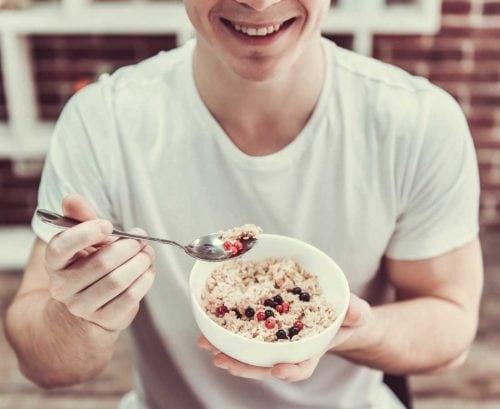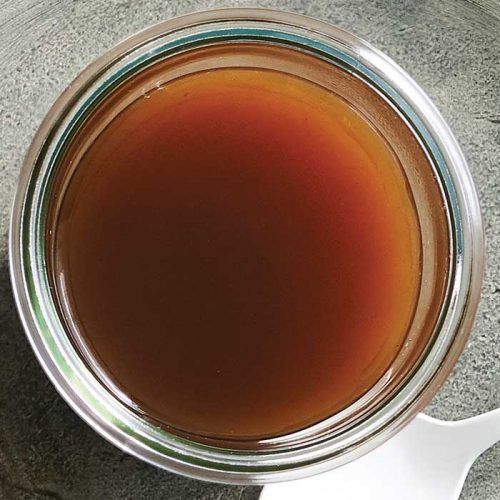
People don’t like talking about their toilet habits — but by lifting the lid on bowel cancer screening and prevention, there are many ways to drastically lower your risk.
Think bowel cancer can’t happen to you — or just don’t want to think about it at all? When most people hear the words ‘bowel cancer’, they switch off. Some think it’s just an old person’s disease, while others find the topic too embarrassing to discuss. But bowel cancer is the world’s third most common cancer, and its second deadliest. It’s time bowel cancer stopped being taboo. Here are seven simple things you can do to protect yourself today.
1 Prioritise screening
People who take part in regular screening programs have 33 per cent less chance of dying from bowel cancer than those who don’t.
“Early detection is absolutely key,” says Professor Teresa Mitchell-Paterson, a nutritionist at Bowel Cancer Australia. “Treating quickly is what we need to do — it saves lives,” she adds.
If you have a family history of bowel cancer, you should have regular colonoscopies to detect abnormal tissues in the bowel. Once you turn 50, your risk of bowel cancer increases. People with a low risk of bowel cancer can do a non-invasive, simple stool test at home called the Faecal Occult Blood Test, which tests for traces of blood in the stool.
2 Swap white for wholemeal
Consuming three serves of wholegrain foods a day can cut your risk of bowel cancer by 17 per cent. Whole grains are high in fibre to help support a healthy gut and offer far more micronutrients than their refined counterparts.
Simple swaps like brown bread instead of white bread, wholemeal pasta instead of white pasta, and soba noodles instead of white rice noodles make all the difference. You should also aim to incorporate foods such as rolled oats, wholemeal couscous and quinoa into your diet regularly. Head here for a simple guide to getting enough whole grains.
3 Lift the lid
Bowel motions aren’t exactly a standard topic of conversation at the dinner table … but knowing what’s normal — and what is not — is an essential health skill.
Having good bowel function means you’re easily able to pass a soft, well-formed stool anywhere from three times a day to three times a week. You should be able to ‘go’ within a minute of sitting on the toilet, feel as though you have fully emptied once you’re finished, and have no pain.
On the flip side, any sudden changes in the size, shape or the colour of your bowel motions could indicate bowel cancer, as also could the onset of diarrhoea or constipation. “If there is any mucus or blood in the pan or on the stool, you need to talk to your GP,” adds Mitchell-Paterson. Other signs include pain and aches, abdominal swelling, nausea, weight loss, vomiting, fatigue and anaemia.
4 Change your tipple
Bowel cancer is one of the many cancers linked to drinking alcohol, so cutting back is a wise idea. “It’s not a matter of stopping drinking altogether — it’s about reducing your intake,” Mitchell-Paterson says.
The more you drink, the greater your risk. So, to cut back, try alternating each alcoholic drink with a non-alcoholic drink. You could also try to pace yourself, or water down alcoholic drinks by creating spritzers (half alcohol, half soda water).
Plus there’s a growing range of alcohol-free beers, wines and spirits on the market.
5 Exercise daily
Exercise activates your immune system.
“The immune system is key in warding off and hunting down cancer cells,” says Mitchell-Paterson. “You should get 30–to–60 minutes of continuous exercise a day,” she adds. Do anything you enjoy, from swimming to Zumba — just stick to it!
6 Go lean
Processed meats such as ham, bacon and sausages are strongly linked to bowel cancer.
“Processed meats contain N-nitrosamines which are potentially carcinogenic,” Mitchell-Paterson says. “You don’t have to eat a lot of processed meats for these chemicals to build up in the digestive system.” The Cancer Council recommends eliminating, or at least minimising, the intake of processed meats.
7 Choose dairy
Research shows people who consume just 400g of dairy daily have a 13 per cent lower bowel cancer risk. That’s the equivalent of a cup of milk, a small tub of yoghurt and a slice of cheese. Easy!
Foods to lower your cancer risk
A high-fibre diet reduces your risk of bowel cancer. “Fibre swells and increases bulk in the bowel. The muscles in the large bowel recognise this and moves the matter down,” explains Mitchell-Paterson.
“If you’ve got toxic chemicals from alcohol or red meat particles, and the matter is moving constantly, there’s no chance for the matter to then sit against the bowel wall and cause inflammation and changes in the bowel wall.”
A high-fibre diet can also help with weight loss as it has a hunger-busting effect — and weight loss in itself can reduce your risk of bowel cancer if you’re overweight or obese.
Women should aim for 28g fibre per day, while men should aim for 38g.
Here are 6 high-fibre foods to add to your shopping list
- Pour rolled oats into your brekkie bowl to enjoy as porridge or muesli
½ cup rolled oats = 4g fibre which is 14 per cent of daily target for women and 11 per cent of the daily target for men. - Add canned red kidney beans to a salad for plant-based protein.
1 cup red kidney beans = 12.4g fibre which is 44 per cent of daily target for women and 33 per cent of the daily target for men. - Roast a batch of artichokes to top a healthy homemade pizza.
½ cup artichokes = 8.5g fibre which is 30 per cent of daily target for women and 22 per cent of the daily target for men. - Enjoy wheat biscuits for breakfast served with milk and fresh fruit.
2 wheat biscuits = 3.6g fibre which is 13 per cent of daily target for women and 9 per cent of the daily target for men. - Use wholegrain bread as a base for breakfast or lunch, or as a side with dinner
2 slices of wholegrain bread = 5.5g fibre which is 20 per cent of daily target for women and 14 per cent of the daily target for men. - Drizzle fresh passionfruit over yoghurt for a healthy afternoon snack
2 passionfruit = 5g fibre which is 18 per cent of daily target for women and 13 per cent of the daily target for men.
Bowel cancer by numbers
33% How much you reduce your risk of death from bowel cancer when you take part in screening every 1–2 years
50 The age after which bowel cancer becomes more common
69% The five-year survival rate for bowel cancer
Are you at risk?
Some of the risk factors for bowel cancer include:
- Family history of bowel cancer
- Inflammatory bowel disease
- Presence of polyps
- High consumption of meat and processed meat
- Being overweight or obese
- Drinking alcohol
- Smoking
www.healthyfood.com










